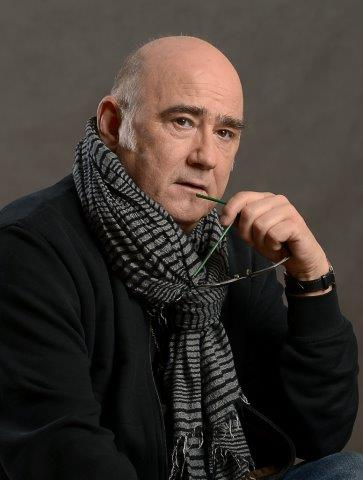Emil Wesołowski – choreographer, dancer and director. In 1966 he graduated from the Ballet School in Poznań. Initially he was engaged by the Poznań Opera ballet; then, together with Conrad Drzewiecki, he moved to the Polish Dance Theatre, newly founded by Drzewiecki. In 1976 a first soloist of the group. He was the first dancer to play Jason in Teresa Kujawa’s ballet Medea as well as many other parts in Drzewiecki’s choreographies. At the same time he started to create his own choreographies for drama theatres. For one season he was the director of the Wrocław Opera (1979–80); he was also the director of the Grand Theatre in Poznań. In 1982 he became the ballet director of the Teatr Wielki in Warsaw and a soloist of the group (parts en travesti Carabosse in The Sleeping Beauty, Widow Simone in La fille mal gardée, and the Headmistress in Graduation Ball). In 1985 he decided not to direct the ballet and focused on choreography. In 1995–2006 he was again the ballet director of the Teatr Wielki – Polish National Opera and since early 2007 till late 2008 – art director of the Grand Theatre in Poznań. Currently he is a regular choreographer of the Polish National Ballet. He is a lecturer at the Faculty of Drama of the Aleksander Zelwerowicz State Drama School in Warsaw. He worked in musical and drama theatres with directors including: Laco Adamik, Kazimierz Dejmek, Mikołaj Grabowski, Jerzy Gruza, Jerzy Grzegorzewski, Adam Hanuszkiewicz, Bohdan Hussakowski, Krystyna Janda, Ryszard Peryt, Maciej Prus, Jérôme Savary, Marek Weiss-Grzesiński, Krzysztof Zaleski and Krzysztof Zanussi. The long-lasting choreographic collaboration on drama and opera performances with Janusz Wiśniewski was particularly successful. He created choreography and stage movement for eight Mariusz Treliński’s opera performances in Warsaw, Poznań and Berlin, as well as to their presentations in Washington, Los Angeles, Tel Aviv, Valencia, Saint-Petersburg and Wrocław. He is a juror in numerous Polish and international ballet competitions. He was granted the Officer’s Cross of the Order of Polonia Restitutia, a Silver Cross of Merit, Medal for Merit to Polish Culture and a Siler Medal for Merit to Culture “Gloria Artis”. He was granted an award from Polish Stage Artists Association for lifetime achievement and was made a freeman of the City of Poznań.
Most important choreographies:
Quattro movimenti (music by B. Schaeffer, Wrocław Opera, 1980, Ballada (music by F. Chopin, the 7th Łódź International Ballet Festival, 1983), Trytony (music by Z. Rudziński, Teatr Wielki in Warsaw, 1985); Games (music by C. Debussy, Teatr Wielki in Warsaw, 1989, later also Grand Theatre in Łódź, Polish Dance Theatre and Wrocław Opera), Mozartiana (music by P. Tchaikovsky, Polish Dance Theatre, 1990), A Legend of Joseph (music by R. Strauss, Grand Theatre in Łódź, 1991, Teatr Wielki in Warsaw, 1992), Dies Irae (music by R. Maciejewski, Teatr Wielki in Warsaw, 1991), The Rite of Spring (music by I. Stravinsky, Teatr Wielki in Warsaw, 1993), Romeo and Juliet (music by S. Prokofiev, Polish National Opera, 1996, Baltic Opera in Gdańsk, 2000, Grand Theatre in Poznań, 2008); Clio’s Triumph (music by J. Sapiejewski, Washington Ballet, 1997), ballet triptych Harnasie, Returnining Waves and Krzesany (music by K. Szymanowski, M. Karłowicz and W. Kilar, Polish National Opera, 1997), Harnasie (music by K. Szymanowski, Grand Theatre in Poznań, 1998), The Miracolous Mandarin (music by B. Bartók, Polish National Opera, 1999), Święta wiosna (music by I. Stravinsky / T. Mieczkowski, Polish National Opera, 2001), Returning waves (music by M. Karłowicz, Grand Theatre in Poznań, 2003), Spartacus (music by A. Chaczaturian, Polish National Opera, 2006), Chopinart (music by F. Chopin, Baltic Opera, 2010), Kisses (at the evening Dancing Bach, music by J.S. Bach, Polish National Ballet, 2010).
Direction:
Semiramida (Rossini, Teatr Wielki in Warsaw, 1998), The Haunted Mansion (Moniuszko, Grand Theatre in Poznań, 2008), Fiddler on the Roof (Bock, Grand Theatre in Poznań, 2008), The Gypsy Baron (Strauss, Baltic Opera, 2008).
